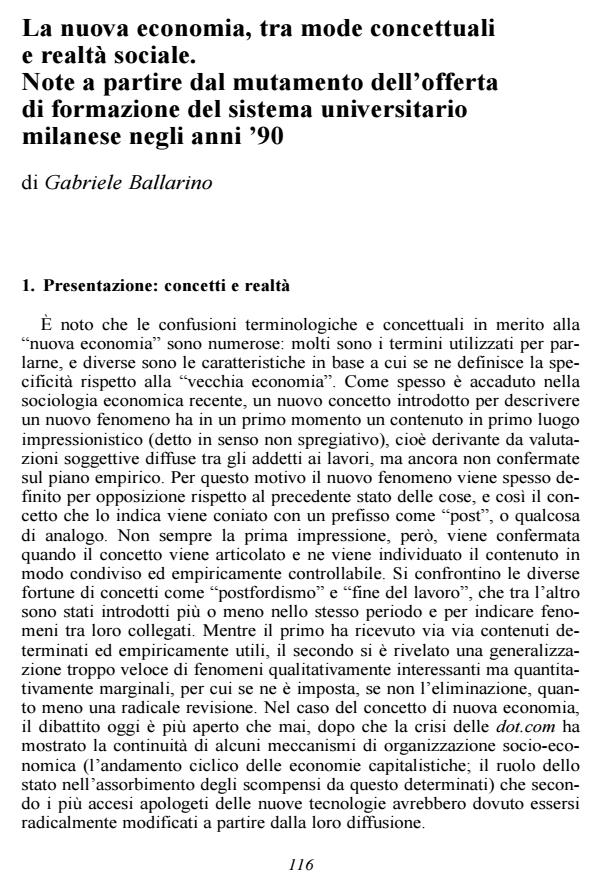La nuova economia, tra mode concettuali e realtà sociale. Note a partire dal mutamento dell'offerta di formazione del sistema universitario milanese negli anni 90
Journal title SOCIOLOGIA DEL LAVORO
Author/s Gabriele Ballarino
Publishing Year 2006 Issue 2005/98
Language Italian Pages 15 P. File size 92 KB
DOI
DOI is like a bar code for intellectual property: to have more infomation
click here
Below, you can see the article first page
If you want to buy this article in PDF format, you can do it, following the instructions to buy download credits

FrancoAngeli is member of Publishers International Linking Association, Inc (PILA), a not-for-profit association which run the CrossRef service enabling links to and from online scholarly content.
New economy and higher education. Changes in the universities of the Milan metropolitan area. The concept of new economy is a new one: it is unclear if it will resist, and become a part of the conceptual toolbox of economic sociology, or disappear as many others fad concepts have done in the recent past. This paper builds on a recent research about the evolution of Milan’s university system, and tries to investigate if the concept can be useful in addressing this object. Its empirical section describes quantitatively, with data purposively collected, the evolution of Milan university system during the Nineties, and finds that it has expanded, mostly in the postgraduate and vocationally oriented area; and become more segmented. Then some causes of this change are investigated: the labour market; the demographic structure; the institutional framework, where there has been a major reform which propelled university participation. The final section speculates about these results, asking if the new economy concept is useful to describe them: the conclusion is that it can be used as a general, sensitizing concept, but one which has to be empirically determined and measured.
Gabriele Ballarino, La nuova economia, tra mode concettuali e realtà sociale. Note a partire dal mutamento dell'offerta di formazione del sistema universitario milanese negli anni 90 in "SOCIOLOGIA DEL LAVORO " 98/2005, pp , DOI: